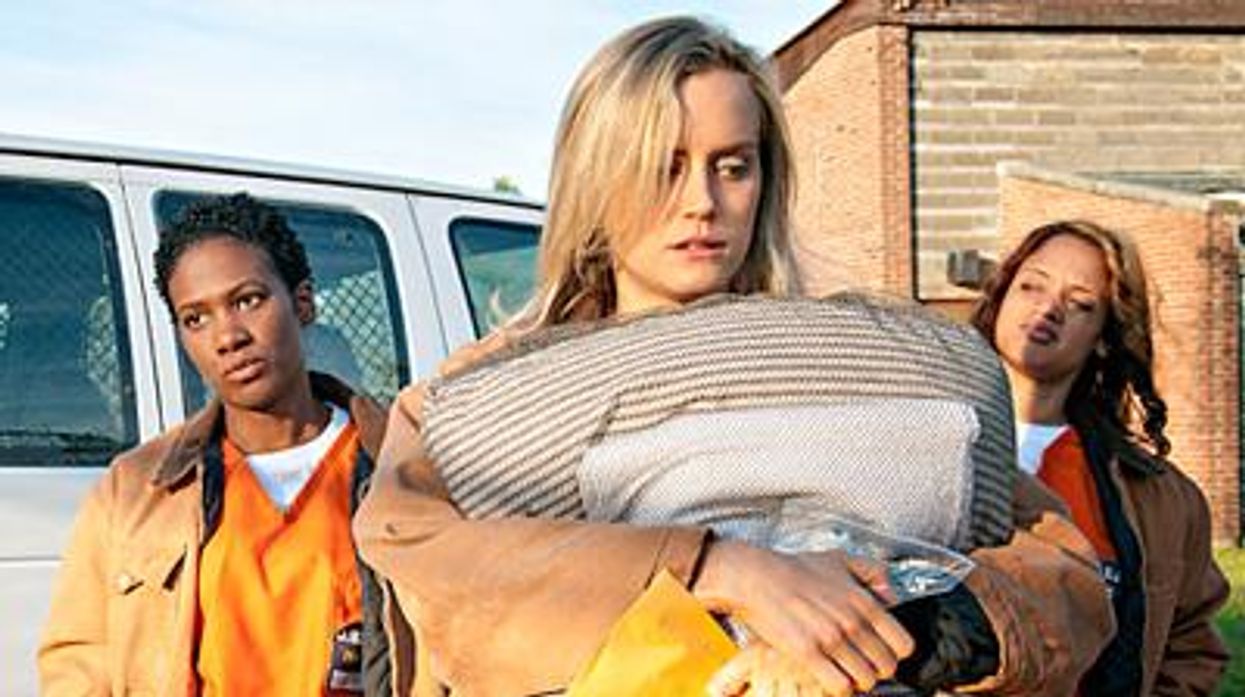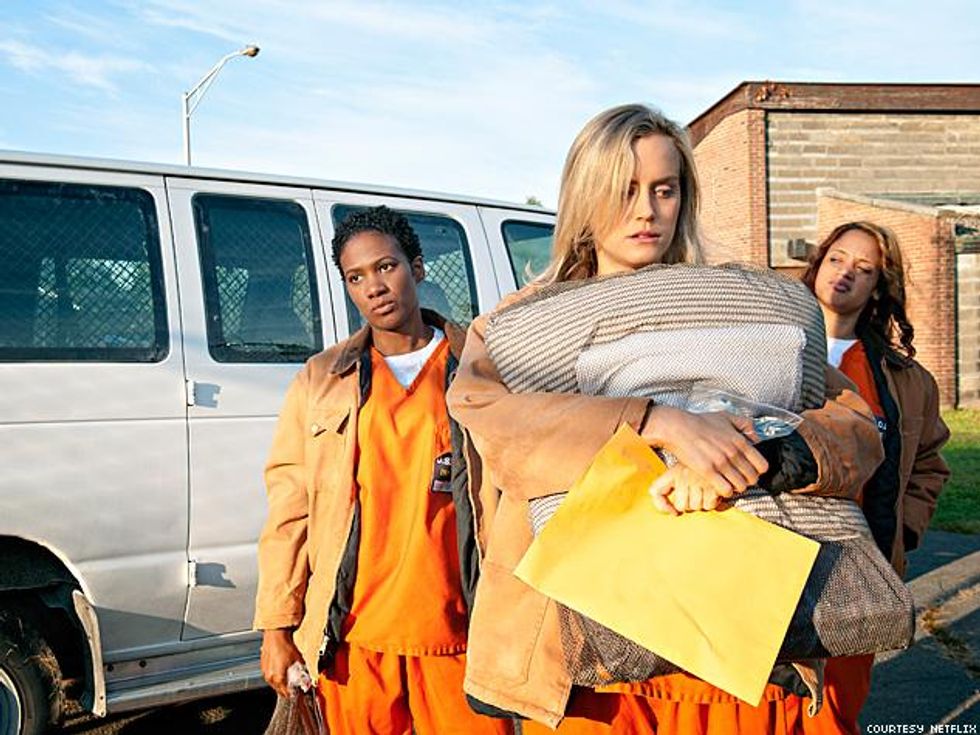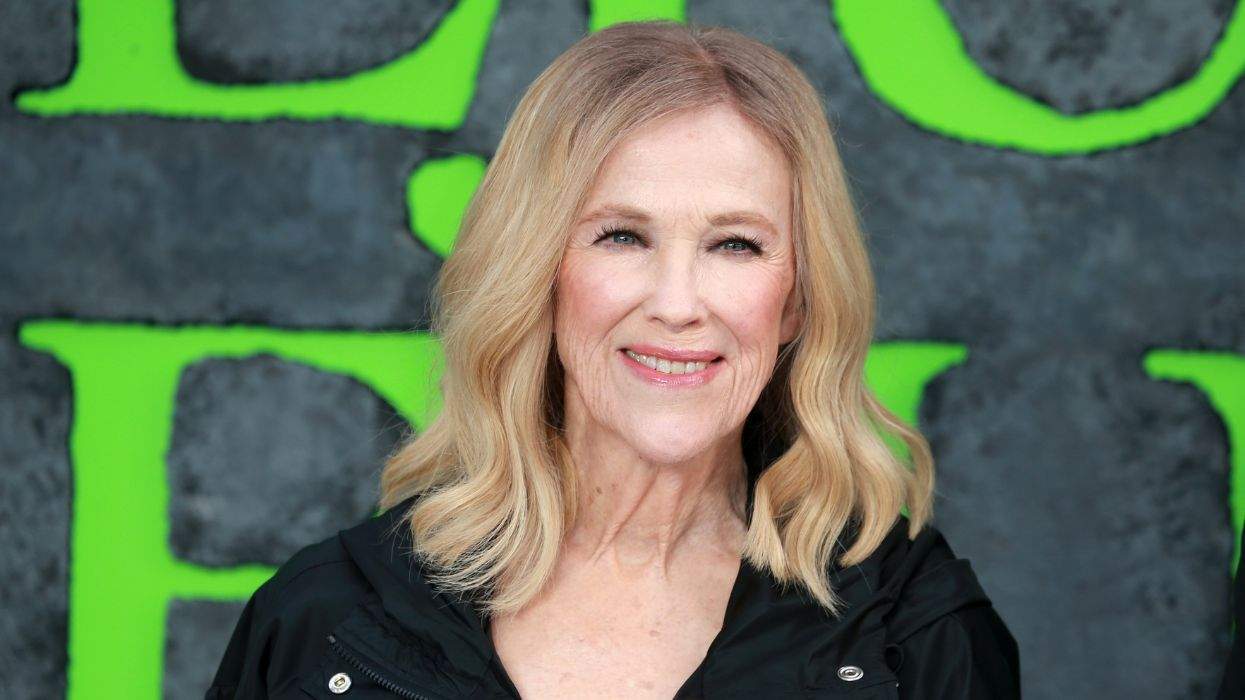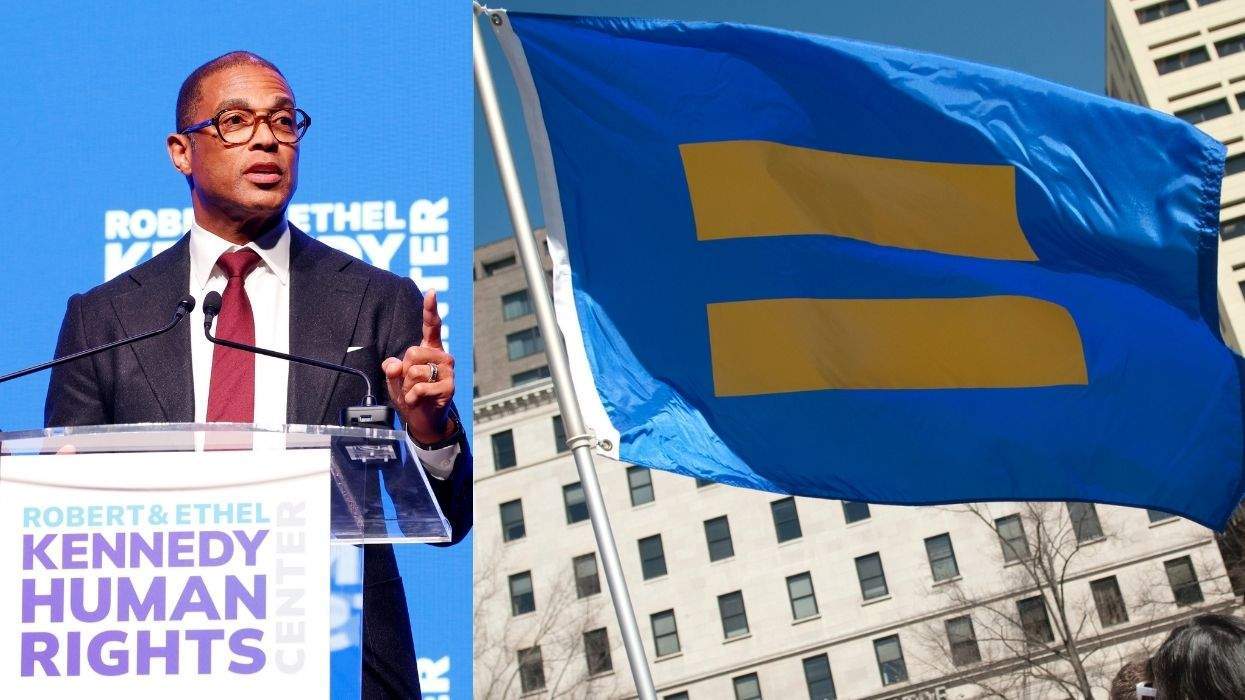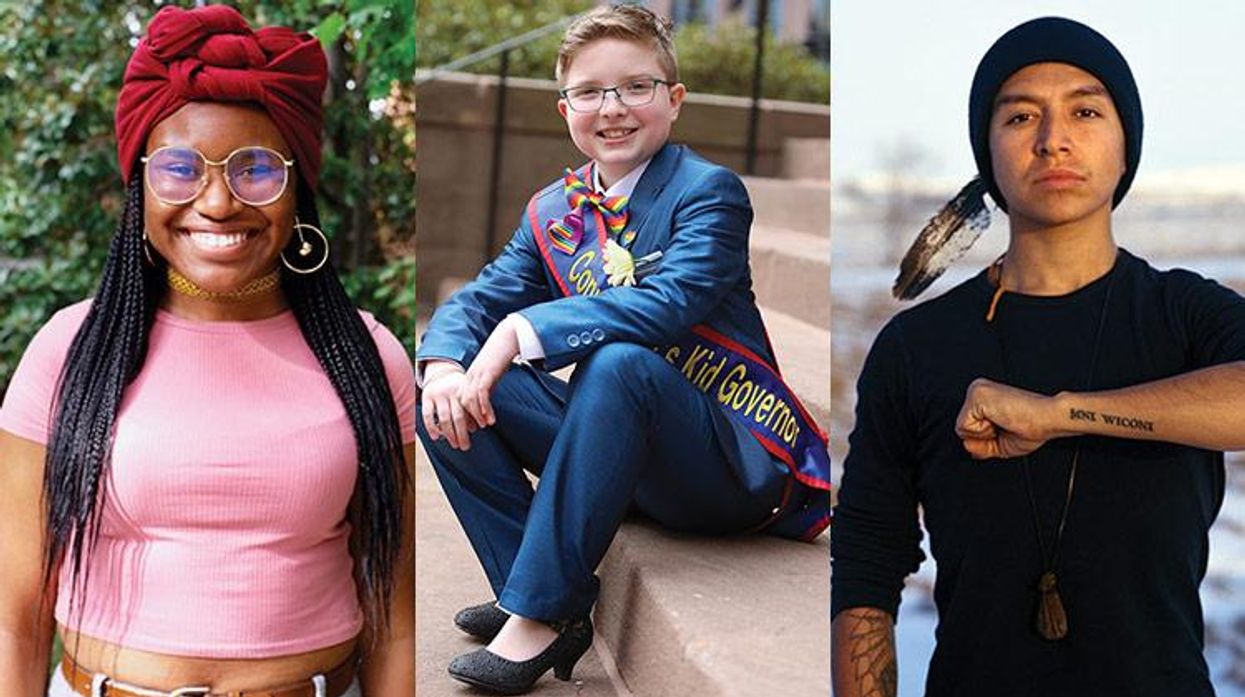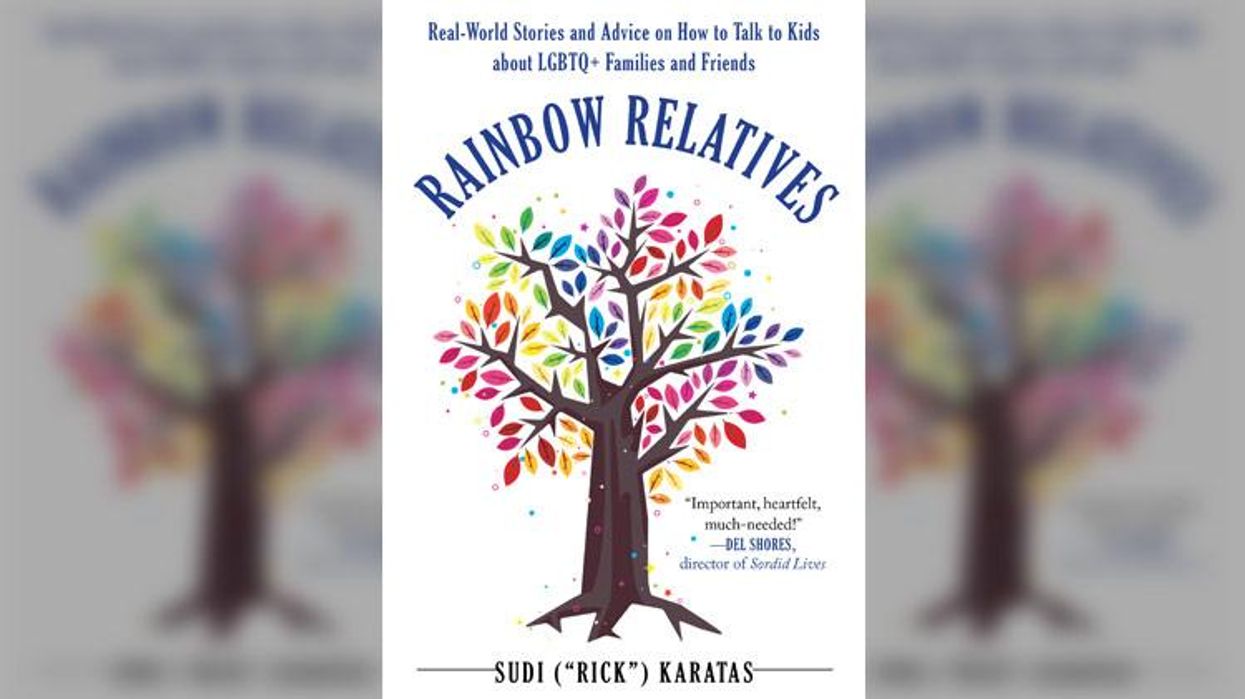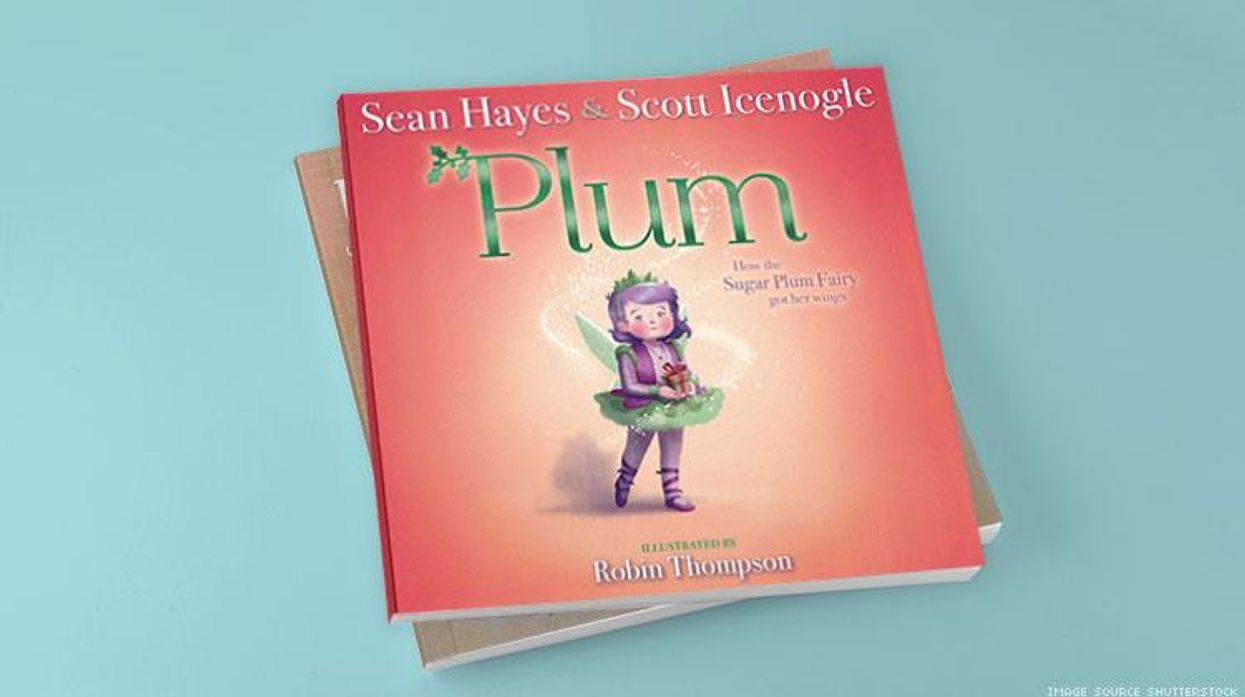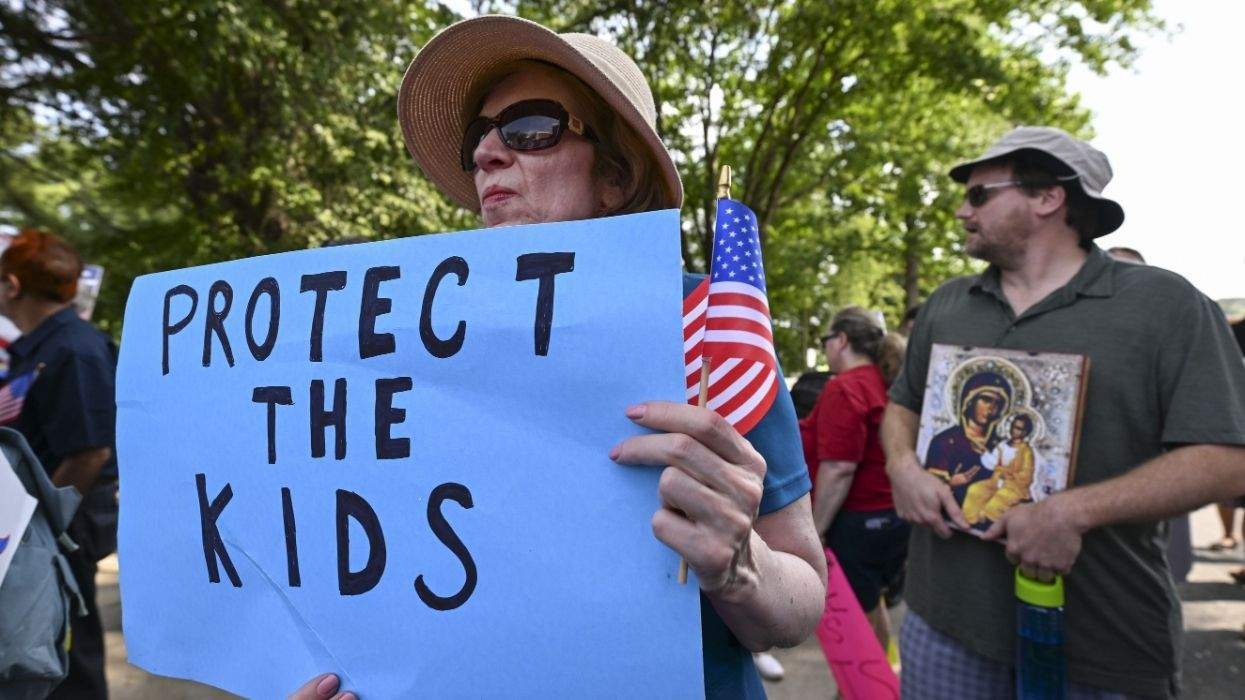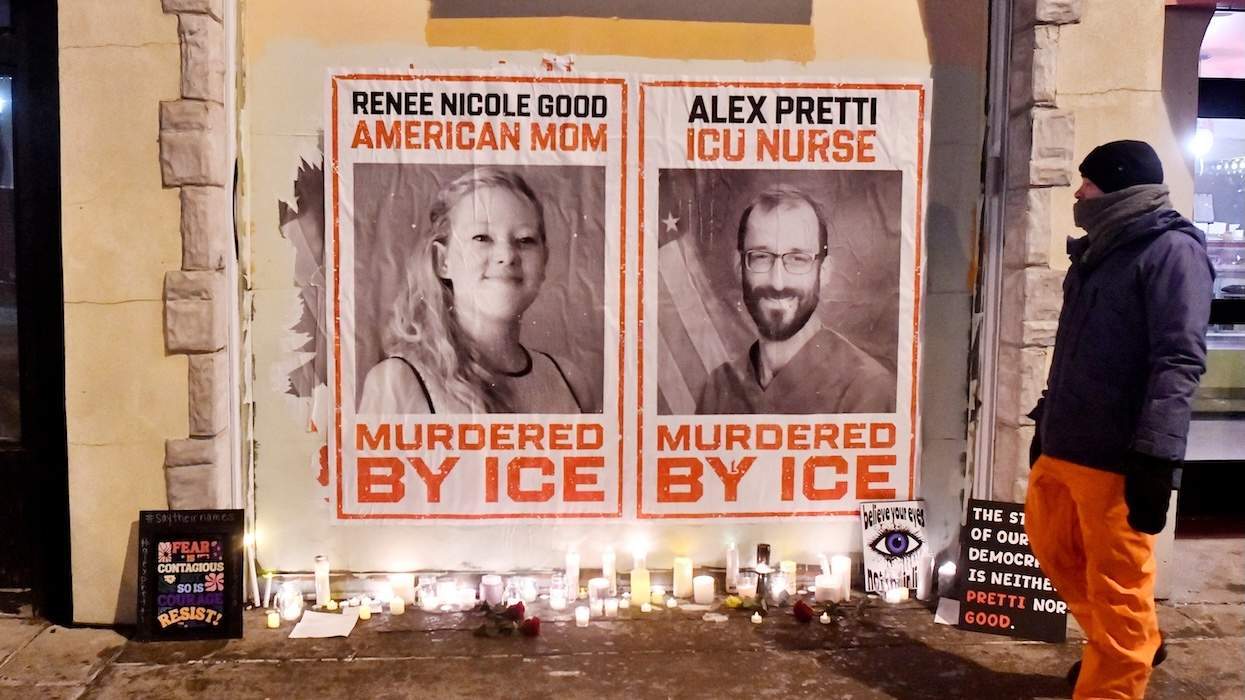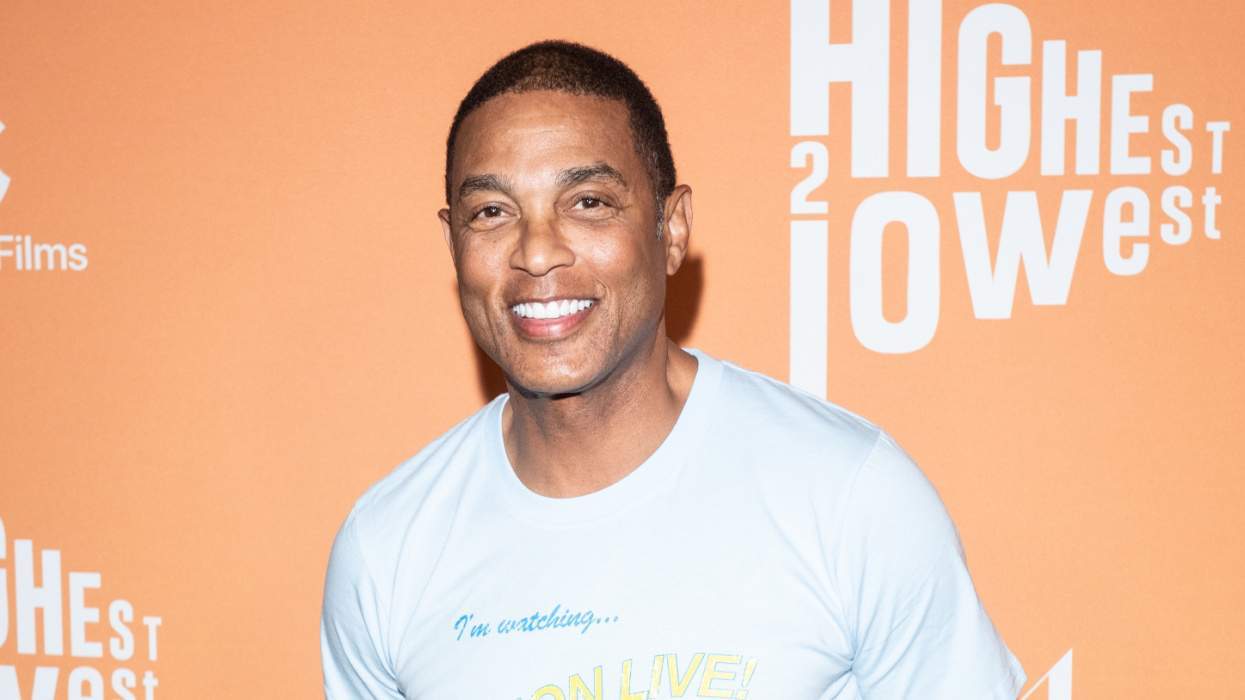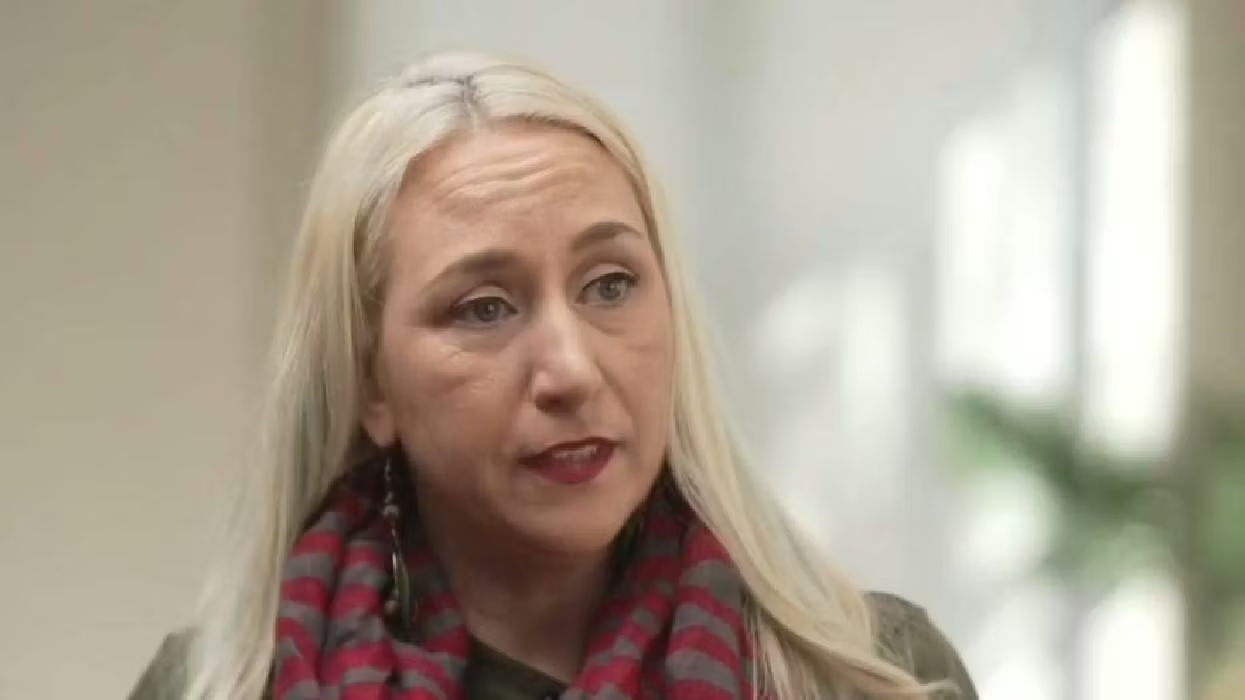Above: Piper (Tayor Schilling) arrives at the detention center.
Security around a screening of Netflix's newest series, Orange Is the New Black, is a tight, cloak-and-dagger affair. If the ensemble dramedy's producers and cast -- Laura Prepon, Taylor Schilling, Kate Mulgrew, Natasha Lyonne, Lea DeLaria, and Laverne Cox, among others -- are worried about negative reviews, they needn't. This new women's prison comedy-drama from famed Weeds creator Jenji Kohan, which debuts July 11, is not just a fantastic female-centric series that could shift the cultural landscape of television -- it could turn out to be TV's best lesbian series ever. (Yeah, that's right, I said it, L Word fans.)
The series, based on Piper Kerman's acclaimed memoir of the same name, revolves around engaged Brooklynite Piper (Schilling), whose decade-old relationship with a lesbian drug-runner Alex (Prepon) results in her arrest and yearlong detention in Litchfield, a federal prison. She leaves behind a fiance (Jason Biggs) and her upper-middle-class world for orange jumpsuits and a baffling prison culture.
Schilling (who starred in TV's short-lived Mercy) does right by her fish-out-of-water storyline, but it's her cellmates who make the series shine. Prepon (That '70s Show) says she was drawn to the role because of the uniqueness of the character. "Alex is not what she seems to be on paper," says Prepon. "She has many layers, as people do, and is very well written. I've never played anybody like her. It was an awesome challenge, and my cast was amazing, which made playing this role that much more enticing."
She rules out method acting -- no secret lesbian trysts to report -- but there was thought given to her drug dealer with a heart of gold.
"I got into the role by relating to her with my own personal experiences," Prepon admits. "Alex is a really great character, and she has many layers. She puts on a front, but is actually a very sincere, genuine person. She loved her job as a drug dealer, because it gave her a position of power. When she is in prison, she has to figure out where she stands in the hierarchy of these women, as well as navigate her new relationship with Piper. We get to see her in many situations, where she has to drop her facade and we really get to know who she is."
 At left: Natasha Lyonne
At left: Natasha LyonneLyonne, already a cult icon for her roles in Slums of Beverly Hills and But I'm a Cheerleader, is perhaps another standout as Nicky, a drug addict making her way through prison. While Taylor is bisexual and Alex is gay, Nicky's self-identity seems a bit more nebulous.
"I definitely think Nicky prefers women," says Lyonne, "but I also think she's someone who uses sexuality to cope with the pain of her family life and enjoys saying sexually inappropriate things to get a reaction, cut tension, and make people laugh. On the back of that tough exterior is a very vulnerable young woman, who is desperate for the unconditional love she never got from her mother."
While some fans might see Nicky as a modern, perhaps darker version of her famed characters, Lyonne disagrees. "I think Nicky is very different from Vivian in Slums of Beverly Hills or Megan from But I'm a Cheerleader, primarily in that, even if those characters were very upset with their parents, they were still very present in those stories. Nicky is much more of a lone wolf, who's had to make her own way in this world. I think she's a much darker person -- one who's been abandoned, but still has enough innate fire in her that she's willing to fight for survival and to make a life for herself, even if behind bars. I also think she's much more self-aware and has a better sense of intentional humor -- skills that have been hard won in her drug-addicted life."
Of course, the media surely will pick up on the irony of Lyonne playing a drug addict; her own troubles with addiction are widely known. After her early career success, her time in Hollywood was derailed by drug use, and she was arrested in 2001 and 2004. In 2005, she was admitted to New York's Beth Israel Hospital with a number of ailments, including a collapsed lung and hepatitis C, and she stayed there in intensive care for five months.
"Suffice it to say that I'd already done plenty of my own drug and jail research, a lot of which I was able to bring to the table to help bring Nicky to life," Lyonne admits. "I'd like to think I created her internal world out of thin air and imagination, but let's be honest, I'd probably be kidding myself."
 At left: Laura Prepon
At left: Laura PreponThe same could be said of DeLaria, Broadway's butch darling who bristles at the idea that TV viewers won't recognize her. She's been on American TV since 1992, having guest-starred in everything from Friends to Saved by the Bell; she recurred on Matlock for two seasons and portrayed Madame Delphina on One Life to Live for over a decade. On Orange Is the New Black, she plays the proverbial TV unicorn: an authentically butch lesbian.
"We never see butch women on television, except for the one on Modern Family that had long pink nails," says DeLaria. "Lesbians on American television are usually pretty and feminine, or hard sexy girls. They are most often doing each other to the delight of the 16-to-24-year-old straight male audience for whom these images are created. Orange Is the New Black is the only show on television that represents butches, and we butches are being very butch."
Indeed, DeLaria's character, Big Boo, is among the show's most captivating, emotionally zigzagging in a way that always disarms viewers. Even lesbian viewers will be surprised. As an actress, DeLaria seems unrestrained in the role.
"Our writers room is filled with intelligent, talented hacks and more than a few queers," she says, adding that she never got a script or direction that didn't feel right for a butch. "In fact, I was allowed more than my share of ad libs to add to the authenticity. What made it magical was how they kept writing great stuff for me, like what I do with the screwdriver in episode four. I don't want to say what happens because I don't want to spoil it. Let's just say I could not wait to do it."
This may also be the first women-in-prison narrative that includes a real transgender woman, a character played by an out trans actress. Laverne Cox (who most recently starred in the indie film Musical Chairs) plays Sophia, the prison hairstylist who is married to another woman.
"Sophia has some beautiful and rich storylines in the show I have never seen a trans woman of color get to play on television," says Cox. "The character is written with so much humanity. I feel so very grateful to have gotten to play her."
She's even more grateful to have worked with Jodie Foster, who made her TV directorial debut on the series.
 At left: Laverne Cox
At left: Laverne Cox"Working with Jodie was the highlight of my career so far," says Cox. "I grew up watching her work and studying her performances. She was a dream director, so generous and smart and passionate about the work. There was one night we were shooting and between takes she comes out to give adjustments and her eyes were filled with tears. Tanya Wright, who plays my wife, and I had both been crying in the scene. My work brought Jodie Foster to tears. It doesn't get much better than that."
In fact, it was the women -- the crew, the cast, the environment -- that drew all these amazing women together.
"If you are asking what drew me to this particular project, that's simple," says DeLaria. "One, it takes place in a women's prison which, let's face it, is just plain hot. Two, Jenji Kohan. I would've given my left nut to work with the creator of Weeds. Jenji is a comedic genius."
Prepon, who tends to hang out with mostly guys, says she was "nervous about being around so many women. I've never worked with this many women before. It was an awesome experience! I learned so much working with these great actresses. There was not one diva. Everybody was there to do great work, and play these awesome/different/kooky characters."
"I was truly blown away by every actor I got to work with on this show," Cox adds. "I learned so much. In episode three I had this scene with Kate Mulgrew and after we rehearsed it, I freaked out because she was so good. I knew she was going to blow me out of the water in the scene. Jodi totally picked up on it and gave me a pep talk. The work she did in just that one scene was a master class in everything we strive to do as actors. Incredible!"
In a town where, according to Hit The Floor's gay creator and executive producer James LaRosa, women comprise 11% of directors in primetime TV and 90% of shows employ no women directors, the Orange is the New Black set was nothing but grrl power (er, woman power). (It's interesting to note that LaRosa's show has only employed women directors, which might explain why it's ranked #1 among women 18-49 in its Monday night cable slot.)
Lyonne, who has spoken a great deal about the industry sexism she and director Tamara Jenkins faced while making Slums of Beverly Hills, says working with Netflix on Orange was nothing but blessed.
"The biggest difference working on a show run by a woman, starring women, and especially one set in women's prison, is the way vanity goes out the window," says Lyonne. "Maybe it's the uniforms or just our dedication to the project, but it seems that there is no one very invested in being the pretty one. We were far more interested in staying as grounded as possible in the reality that these were women in prison, not actresses on a TV show."
She says that a great debt is owed to Netflix for "never shying away from 'gross female stuff.' I'm particularly reminded of Tamara Jenkins' absurd and frustrating struggles on Slums of Beverly Hills, when the studio asked her if it was necessary to hold on the shot of blood on the dining room chair when my character, Vivian, got her period. We never came up against this sort of thing on Jenji's show. They wanted our show to be as honest to the female experience as possible."
Netflix, which surprised appointment TV-watchers with House of Cards and fanboys with Hemlock Grove, seems to be making all the right moves. Will Orange Is the New Black will have the same reaction?
"One can only hope," says Cox. "It's a very exciting time we are in, with Netflix leading the way with such quality programming online. I know I am blown away by the writing, the actors, and our amazing crew. I hope the public responds the way I have."
And indeed, though the show is honest and raw, exploring the real lives of what feel like real women, it's still a damn funny show. This is not the sexploitation women's prison of flicks like Caged Heat or even Prisoner: Cell Block H, the scary Aussie women-in-prison series that offered many a '70s child their first glimpse of lesbians.
"Without comedy, it's just drama and then it becomes Cell Block H or Oz," DeLaria says before offering a chuckle. "Although I can remember being 16, smoking pot, and screaming with laughter at Cell Block H."
DeLaria says that for her, working on a TV series with so many women was "stimulating, and not just in an artistic way. It wasn't just women either. I think it was my second or third day of filming when I looked around me and said, "This set is like a dyke bar; all we need is a pool table and a DJ spinning 'We Are Family.'"
